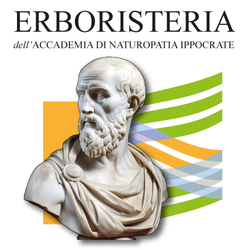What is Propolis and how is it obtained?
Propolis is a resin known by many for its countless beneficial properties. It is produced by bees of different species, starting from the resinous material collected on the buds and bark of some plants. It is then mixed with particular waxes, pollen, enzymes and other substances present in the digestive system of the bees themselves.
This very precious substance is, therefore, the result of the interaction between the animal and plant kingdoms. Over the centuries, plants, in an attempt to protect their most delicate parts from external aggressions, have in fact learned to cover them with resins rich in polyphenols.
Bees rework these resins to obtain Propolis, which they then use both as a sealant to prevent cracks and crevices in their hive, in order to protect it from external invaders, and to stabilize the temperature and humidity levels within the hive itself, in order to inhibit any accumulation of bacteria and fungi. In other words, bees take advantage of the incredible antibacterial and antifungal properties of Propolis.
In nature this substance appears in multicolored granules with a hard and crumbly consistency, but as soon as it is handled and heated it becomes viscous and sticky.
At the beginning of the modern era, Propolis became the subject of research, particularly regarding the identification of its chemical composition. It has been shown that this varies based on several factors, including the plants of origin, the type of bees that collect it, the climate and the collection period.
In its set of active ingredients, a substantial quantity of resins and balms have been identified, to which are added waxes, volatile substances, organic materials, flavonoids, pollen, minerals and vitamins.
Benefits and properties of Propolis
The innumerable beneficial effects of Propolis have been known and considered for many centuries, so much so that traces of its use can already be found in the time of the ancient Egyptians.
Propolis, in fact, brings together multiple properties, from antibacterial and antiviral to antifungal ones, through anti-inflammatory and immuno-regulatory ones. This is possible precisely by virtue of the incredible mix of substances from which it is composed.
It is precisely in ancient times that it began to be successfully added to preparations against seasonal ailments such as sore throats and colds, fully acquiring the indication of a true natural antibiotic.
The main properties of Propolis are:
Antiseptic and antibacterial: it has been scientifically proven, through a series of in vivo and in vitro studies, that many symptoms of colds (and not only) can be attenuated and alleviated by treatment with Propolis;
Immunostimulant: the important content of vitamins and minerals contributes to supporting the immune system, proving to be a useful ally in view of the winter;
Antimicrobial and antiviral: the content of flavonoids, in particular Galangin and Pinocembrin, helps to counteract the formation and take root of pathogenic bacteria and viruses, becoming a valid support for preventing colds;
Healing and anti-inflammatory: excellent help to protect the throat, in case of small ulcers, canker sores of the oral cavity but also bad breath.
Antioxidant and protective action of the capillaries: supports the most delicate and reactive skin, subject to dermatitis and/or irritation.
Propol mix 1 is indicated as an adjuvant for all infectious diseases, especially: laryngitis, tracheitis, laryngotracheitis, sinusitis, bronchitis, cystitis and urethritis. Cold viral illnesses: colds and flu.
The action of the product is broad spectrum, i.e. it works on different strains of bacteria, fungi and viruses. Propolis is a natural antibiotic and has a bactericidal, antiviral and antifungal action.
Its action is enhanced by Echinacea which, in addition to having an antiviral action, acts on the immune system, strengthening its defenses; calendula has an antiviral action. The presence of some of the most powerful essential oils such as Spanish oregano, thyme, melaleuca alternifolia, means that the product has an antiviral, antifungal, bactericidal and bacteriostatic action.
INGREDIENTS: Alcohol, water. PROPOLIS extracts 10%, ECHINACEA (Echinacea angustifolia Heller) root, CALENDULA (Calendula officinalis L.) flowers and leaves, natural aromas (ten essential oils, including THYME, SPANISH OREGANO, LAVENDER, TEA TREE OIL, etc.)
CONTENT PER DAILY DOSE OF VEGETABLE INGREDIENTS: 90 drops make available Echinacea 75 mg, Calendula 37 mg. RECOMMENDATIONS FOR USE: The recommended dose for any need to supplement the diet is 30 drops 3 times a day, in half a glass of water, 10 minutes after meals.
PRECAUTIONS: Do not use in case of gastric disorders. Do not take during pregnancy. All dosages are intended for people with an average weight of 60 kg. about. Children of:- 30 kg. half dose; - 20kg. 1/3 dose; - 15kg.
1/4 dose; - 10kg. 1/6 dose.

Watch the video:
